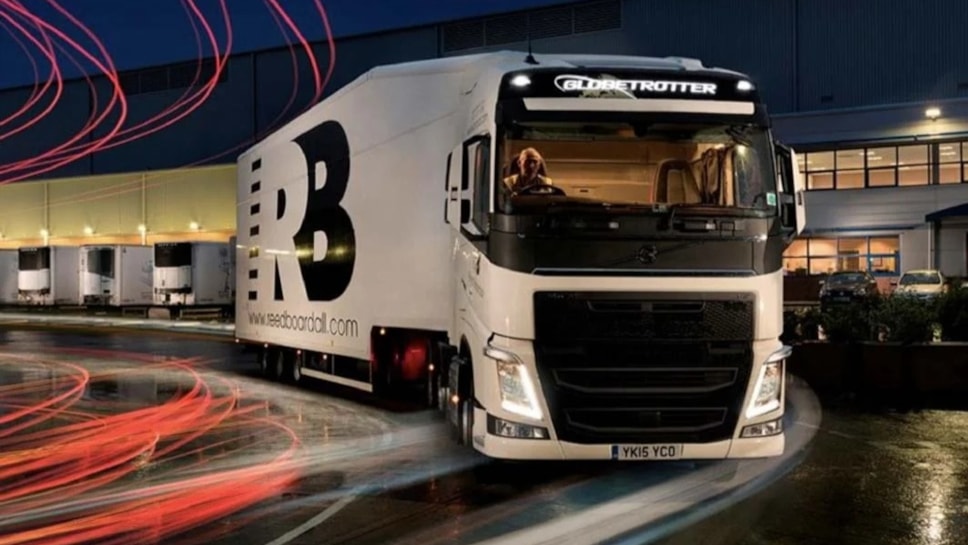
Keeping Britain’s ‘cold chain’ running greener
From frozen peas to life-saving medicines, Britain’s cold chain – refrigerated transport preserving the integrity and quality of temperature-sensitive or perishable goods – never sleeps. By teaming up with Reed Boardall, one of the UK’s largest temperature controlled distribution businesses, we’re proving even the coldest of industries can heat up its net zero journey
Every tub of ice cream, every life-saving medicine, every ready meal has a journey – and much of it depends on the UK’s cold chain. It’s a vast but often invisible system, with 34 million cubic metres of refrigerated space nationwide ensuring the things we rely on stay safe, fresh and available – keeping supermarket shelves stocked and hospitals supplied.
Reed Boardall is a family-owned business in North Yorkshire that operates one of the most extensive cold storage sites in the country. Its 55-acre Boroughbridge facility houses 168,000 pallets and runs 24/7 – which makes energy both a critical need and a huge challenge. But there’s a catch: keeping everything cool takes a huge amount of energy.
That’s where npower Business Solutions (nBS) comes in. Over the past seven years, our relationship with Reed Boardall has grown from supplying power to working side by side on new ways to manage, save and even generate the energy on which it relies.
When the organisation experienced data problems after installing combined heat and power (CHP) plant, nBS engineers stepped in to resolve the issue – restoring accurate monitoring so it could make better-informed decisions. Now the focus is shifting to the next stage: solar photovoltaic (PV). With grid costs rising and renewables offering greater value than ever, on-site solar generation could soon make both financial and environmental sense.
Turning flexibility into opportunity
Reed Boardall’s 24/7 operations also make it a perfect candidate for flexibility. By joining our Demand Shift service, the business can temporarily reduce electricity use at peak times and sell that unused power back into the market – earning money for easing pressure on the grid. In just one winter, this service generated almost £3,000, all without disrupting operations or compromising food quality.
“Cold storage is one of the most energy-intensive sectors out there,” says Ben Whitelam, Director of Commercial and Data & Metering Services at nBS. “What makes Reed Boardall stand out is how open they are to trying new ideas – from flexibility to solar. They’re proving that even the most power-hungry industries can take creative steps towards net zero.”
Driving towards a greener fleet
The innovations don’t stop at the warehouse door. Reed Boardall already has 10 electric vehicle (EV) charging points on site and is exploring wider electrification of its fleet. Sub-metering, Capacity Market (CM) agreements and exporting surplus power are also on the table as next steps to boost sustainability.
From trialling flexibility services to planning solar PV, the partnership is proving how creativity and innovation can tackle some of the cold chain’s biggest challenges.
For us, the story goes beyond one site in Yorkshire. It’s about showing how even the most energy-intensive sectors can embrace innovation, improve resilience and contribute to the UK’s wider clean energy ambitions.
From frozen meals to essential medicines, the cold chain underpins daily life. By embracing smarter energy solutions, it can do so more efficiently – and more sustainably – than ever before.

